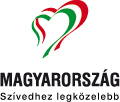Towards an integrated approach to cultural heritage for Europe – EDUC – 21 November 2014. Brussels
Hír
2014-11-26
 21 November 2014, the CoR draft opinion on “Towards an integrated approach to cultural heritage for Europe”, rapporteur Mr. György Gémesi (president of the MÖSZ) was voted and accepted by the EDUC of the Committee of the Regions in Brussels. Cultural heritage creates significant economic and societal wealth, which directly benefits Europe's regions and cities. Despite it also being a cornerstone of local, regional, national and European identity, György Gémesi, Mayor of Gödöllő, has criticised that insufficient value is placed on cultural heritage in an opinion for the EU Committee of the Regions.
21 November 2014, the CoR draft opinion on “Towards an integrated approach to cultural heritage for Europe”, rapporteur Mr. György Gémesi (president of the MÖSZ) was voted and accepted by the EDUC of the Committee of the Regions in Brussels. Cultural heritage creates significant economic and societal wealth, which directly benefits Europe's regions and cities. Despite it also being a cornerstone of local, regional, national and European identity, György Gémesi, Mayor of Gödöllő, has criticised that insufficient value is placed on cultural heritage in an opinion for the EU Committee of the Regions.
 21 November 2014, the CoR draft opinion on “Towards an integrated approach to cultural heritage for Europe”, rapporteur Mr. György Gémesi (president of the MÖSZ) was voted and accepted by the EDUC of the Committee of the Regions in Brussels. Cultural heritage creates significant economic and societal wealth, which directly benefits Europe's regions and cities. Despite it also being a cornerstone of local, regional, national and European identity, György Gémesi, Mayor of Gödöllő, has criticised that insufficient value is placed on cultural heritage in an opinion for the EU Committee of the Regions.
21 November 2014, the CoR draft opinion on “Towards an integrated approach to cultural heritage for Europe”, rapporteur Mr. György Gémesi (president of the MÖSZ) was voted and accepted by the EDUC of the Committee of the Regions in Brussels. Cultural heritage creates significant economic and societal wealth, which directly benefits Europe's regions and cities. Despite it also being a cornerstone of local, regional, national and European identity, György Gémesi, Mayor of Gödöllő, has criticised that insufficient value is placed on cultural heritage in an opinion for the EU Committee of the Regions.
Creating funding and policy synergies
The opinion has been drawn up in response to a European Commission communication, which aims to underline the support that is available to promote culture and heritage conservation under the various EU instruments, including exemption for state aid. Whilst acknowledging these resources, Gémesi insists that synergies must be created between the structural funds, the Horizon 2020 programme and the Europe 2020 Strategy and that the involvement of private capital should be encouraged.
Rapporteur in his draft opinion:
· This opinion examines the cultural heritage issue through integrated approach and emphasizes the importance of the role which all levels of government have to play, by actively involving the players concerned in the protection of and support for cultural heritage in Europe, as well as, in steps to take advantage of cultural diversity to the benefit of economic recovery;
· Stresses that cultural heritage is an integral part of the cultural and creative sectors; it is the sum of tangible, intangible and natural resources, goods and knowledge inherited from the past and it can help shape the face of municipalities, cities, towns and regions and significantly help to achieve the Europe 2020 strategy goals and strengthen social cohesion;
· Feels that the role of cultural heritage is still under-valued. Indeed the proportion of State aid earmarked for cultural heritage goals has constantly been on the decrease. Therefore welcomes enlarging the scope of the general block exemption regulation for aid to promote culture and heritage conservation; this development recognises, on the one hand, the importance of cultural heritage as a factor in job creation and, on the other, its role in conveying the identities and values which make up a society: two features which should be taken into account when allocating State aid;
· Stresses that local cultural values are all closely linked to identity, which is rooted in the tangible, intangible and natural heritage of communities;
· Considers it important that the policy on the sustainable development of cultural heritage should have positive repercussions in the short, medium and long term for improvements to the economic situation and quality of life in the region concerned and furthermore, it remains essential for maximum synergy to be created between European funds and programmes so as to ensure effectiveness and efficiency;
· Underlines the fact that, as part of the development of regional economies and regional, territorial and urban development strategies and programmes, it strongly recommends that account be taken of: the conservation of cultures and cultural resources which embody value; the burden which the environment and the regions can cope with; and environmental protection-related considerations. Stresses that local and regional governments must take up a front-line role in developing responsibility for protecting the built and natural environment, in encouraging a positive change in mentality and in rallying the public to this cause;
· In all areas of cultural heritage, recommends encouraging the involvement of private capital, which requires both introducing tax incentives and shaping responsible public opinion on preserving tangible and intangible heritage;
· Draw attention to the cultural routes which run both within countries and across borders and, with the involvement of the public and all relevant stakeholders, make an appreciable contribution to spreading local and regional cultural values, as well as helping in complex ways to support employment, job creation and business operations;
· In rethinking the general approach to and role of cultural heritage, we need to focus on reaching a wide audience – and also a new one – by reaping the benefits of technology and making use of new communication tools. This will promote the creation of communities, the exchange and development of knowledge, cultural activities, learning and research;
· Stresses the need to make cultural assets and services accessible to all and measures to reduce inequalities can only bear fruit if they are implemented with the support and involvement of the people concerned and if they broaden access to skills;
· Recommends that, as part of European Heritage Days, the theme for the week should be chosen to form a network between local authorities' cultural activities;
· Underlines the key role played by cross-border town twinning schemes in promoting a mutual, interactive and experience-based understanding of local and regional cultural heritage and of its diversity, thanks to the active involvement of the public. Recommends rewarding the best cultural heritage protection practices that emerge from partnerships and cooperation between local authorities, which will also help to strengthen the identity of the European Union;
· Considers it important for thematic cultural heritage cooperation schemes to be set up and implemented in urban and rural municipalities, and for all stakeholders to be encouraged to take an active part in the decision-making process, so as to promote effective participatory governance;
Brussels, November 2014.





























